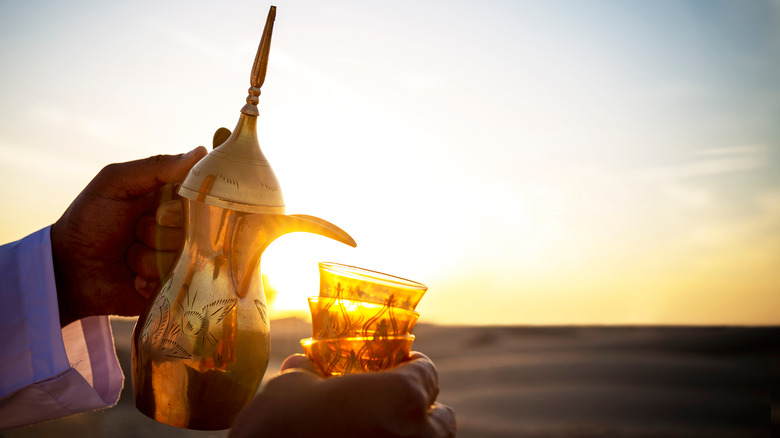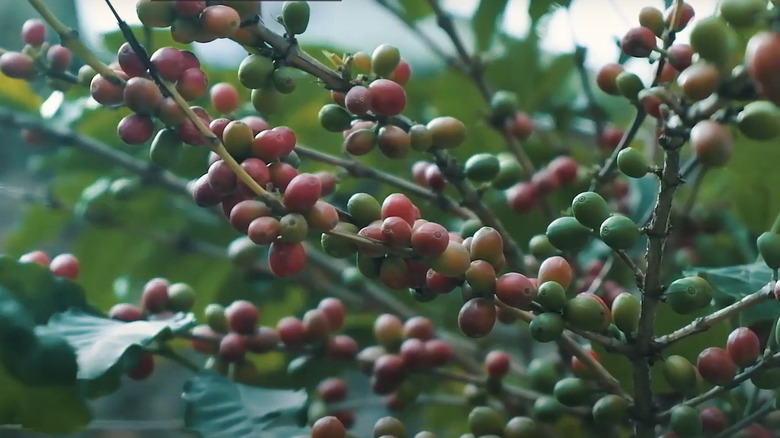Why Khawlani Coffee Has Been Cherished For Over Three Centuries
Some traditions are so entwined with their cultural heritage they become worthy of special status and protection. UNESCO, the international organization with roots in WWII efforts to preserve the "intellectual and moral solidarity of mankind" and the protector of historic landmarks worldwide, has a designated category for those traditions: intangible cultural heritage. Traditions currently on that UNESCO list include Arabic calligraphy, Irish harping, and Ukrainian ceramic painting.
In 2019, Saudi Arabia petitioned UNESCO to consider adding the ancient art of Khawlani coffee cultivation and production to its cultural heritage list (via Arab News). The centuries-old practice continues today in what is now the Jazan region of Saudi Arabia, located on the Red Sea near the Yemeni border. The goal of the petition is to garner recognition, and cultivate support, for farmers who continue to produce Khawlani according to traditions passed generation to generation for more than three centuries. The practice today faces two significant threats. First, it's an oral tradition with no reliable written documentation. The second threat is both environmental and practical — water and working resources are scarce.
Rehaf Gassas, heritage department director at the Saudi Heritage Preservation Society, a nongovernmental organization established in 2010, and an expert in UNESCO's intangible cultural heritage initiative, told Arab News the UNESCO designation may finally nudge Saudi Arabia to offer the aid Khawlani farmers need to sustain the age-old industry.
What's so special about Khawlani coffee?
While its roots are murky (remember, it's mostly oral tradition), it's widely believed the ancient tribes of the Khawlan, a region that once encompassed parts of today's Jazan and Yemen, named the coffee for one of their founding ancestors, Khawlan bin Amir (via Arab News).
Farmers in six of Jazan's 16 provinces are currently engaged in the traditional cultivation of Khawlani coffee beans. It's considered a noble occupation, bringing status and recognition to the region. Ironically, while Khawlani beans are ranked among the world's finest, according to Arab News, they are not as well-known in Saudi Arabia.
Traditional cultivation is a time-consuming practice. It can take up to three years for a tree to bear fruit, which is harvested by hand, then laid out to dry on rooftop dehydration beds. While it dries, farmers must hand-turn the fruit until it's uniformly black in color — and finally ready to peel, roast, and grind. It's a tradition embedded in the Jazan way of life. The coffee itself is central to family ties. Serving it to guests is a sign of welcome and respect.
With its UNESCO petition pending — it's on the docket for UNESCO consideration in late 2022 — Khawlani is experiencing a renaissance of sorts as it takes center stage amid Saudi Arabia's Year of Saudi Coffee (via BBC), a year-long celebration of the country's cultural connection to coffee.

